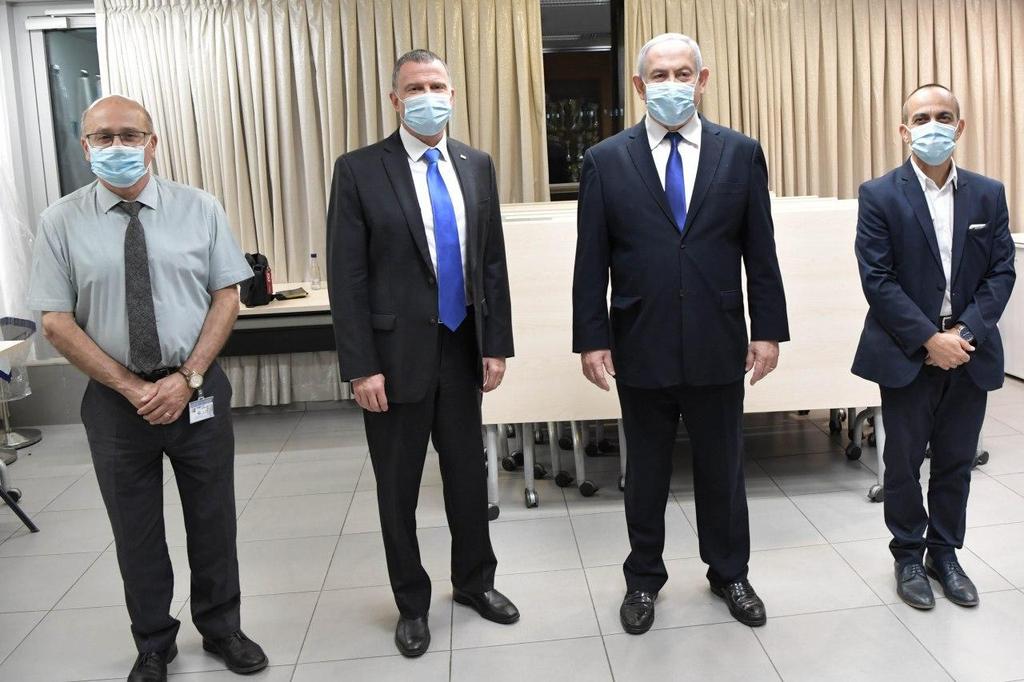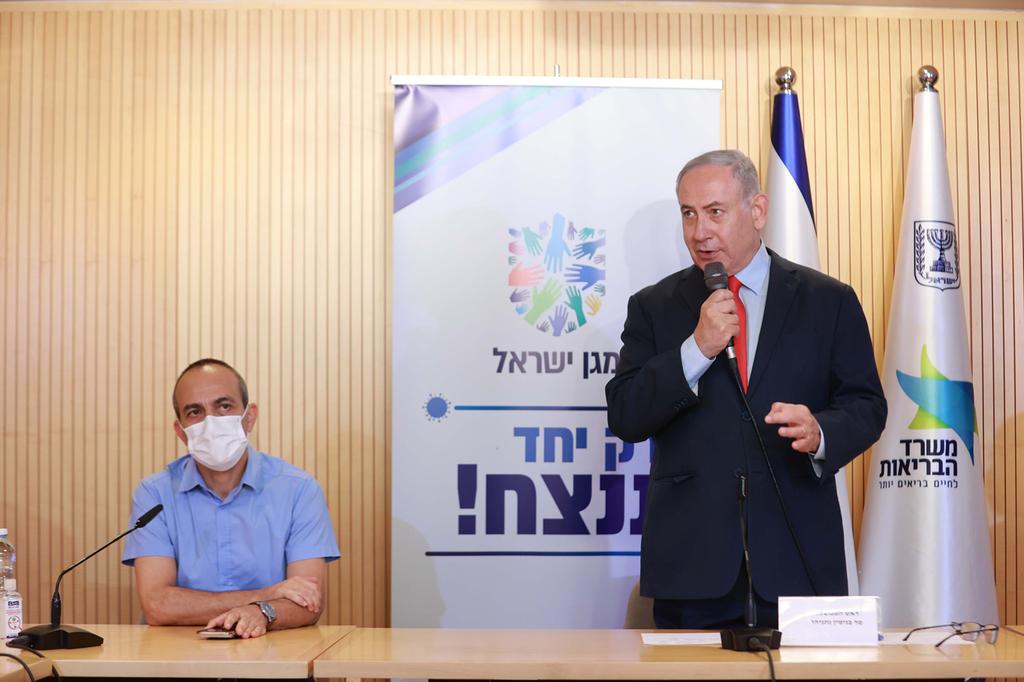Getting your Trinity Audio player ready...
Prime Minister Benjamin Netanyahu, Health Minister Yuli Edelstein, and coronavirus taskforce chief Prof. Ronni Gamzu convened a press conference on Sunday, showing cautious optimism as the number of daily coronavirus infections across Israel stabilized in recent weeks.
Gamzu said that the government will not hurry to lift any restrictions on the economy until daily coronavirus infections will have dropped.
2 View gallery


Left to right: Health Ministry Director-General Prof. Hezi Levi, Health Minister Yuli Edelstein, Prime Minister Benjamin Netanyahu and coronavirus czar Prof. Ronni Gamzu
(Photo: GPO)
"We won't be hasty. We want to form adequate enforcement and the rules to be clear this time," said Gamzu. "Don't push us with this, it would be easier for us to lift restrictions when the curb starts to flatten."
"The IDF is doing its job in every aspect, including education and understanding of what is happening in the Arab and ultra-Orthodox sectors. We are close to seeing a decline in cases. It is important to observe the rules and keep reducing infections. It depends on our discipline and cooperation. We want to get to the High Holy Days [the Jewish holiday season which takes place around September] with Israel a green country [low coronavirus case count]."
Gamzu then hinted at upcoming leniencies to restrictions on the restaurant industry which currently only allow eateries to host 20 diners indoors and 30 outdoors at the same time while observing social distancing.
"We will present the Coronavirus Cabinet with the current situation [on Monday] and discuss the future," said Gamzu. "We can discuss, for example, what happens with a very large restaurant that has space."
2 View gallery


Prime Minister Benjamin Netanyahu (standing) and coronavirus czar Prof. Ronni Gamzu
(Photo: Tal Shahar)
Prime Minister Netanyahu said that the state is examining different procurement options for future coronavirus vaccines.
"We are examining options for vaccines. The signs are encouraging but it's too early to tell. We want Israel to have access to such inoculations when they become available," said Netanyahu. "Medical teams and at-risk populations will be first to receive them, then followed by the rest of the population."
The premier also spoke about the state budget, which has become a contested issue between Netanyahu's Likud party and coalition partners Blue & White.
"To overcome the crisis, we must immediately siphon in funds for a three-month budget. We don't know what the economy is going to look like in the long run. There's no reason this won't happen, we must not condition the budget on political considerations."
In the coalition agreement with Blue & White, Netanyahu committed to passing a biennial budget. According to the agreement, failing to so could lead to the disbandment of the government while leaving the rotation deal for the premiership with Blue & White party leader and Defense Minister Benny Gantz void.

